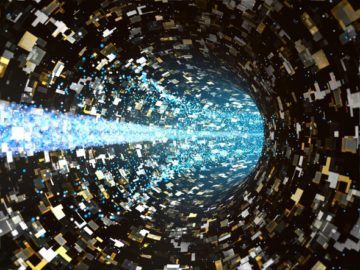Daniel Garisto in Scientific American:
 For the first time, a quantum computer made from photons—particles of light—has outperformed even the fastest classical supercomputers.
For the first time, a quantum computer made from photons—particles of light—has outperformed even the fastest classical supercomputers.
Physicists led by Chao-Yang Lu and Jian-Wei Pan of the University of Science and Technology of China (USTC) in Shanghai performed a technique called Gaussian boson sampling with their quantum computer, named Jiŭzhāng. The result, reported in the journal Science, was 76 detected photons—far above and beyond the previous record of five detected photons and the capabilities of classical supercomputers.
Unlike a traditional computer built from silicon processors, Jiŭzhāng is an elaborate tabletop setup of lasers, mirrors, prisms and photon detectors. It is not a universal computer that could one day send e-mails or store files, but it does demonstrate the potential of quantum computing.
Last year, Google captured headlines when its quantum computer Sycamore took roughly three minutes to do what would take a supercomputer three days (or 10,000 years, depending on your estimation method). In their paper, the USTC team estimates that it would take the Sunway TaihuLight, the third most powerful supercomputer in the world, a staggering 2.5 billion years to perform the same calculation as Jiŭzhāng.
More here. And more in Science News here.
